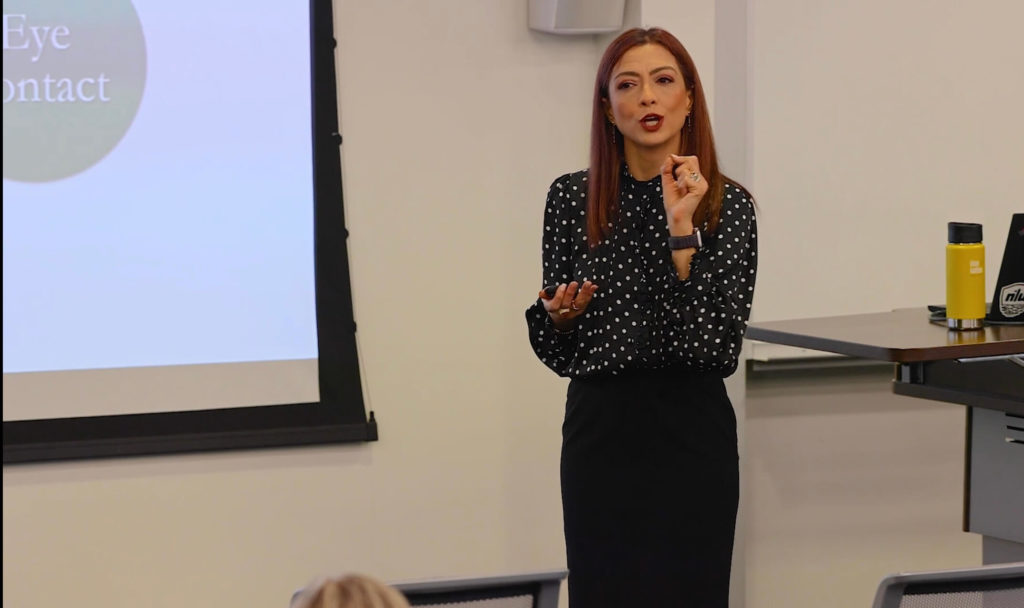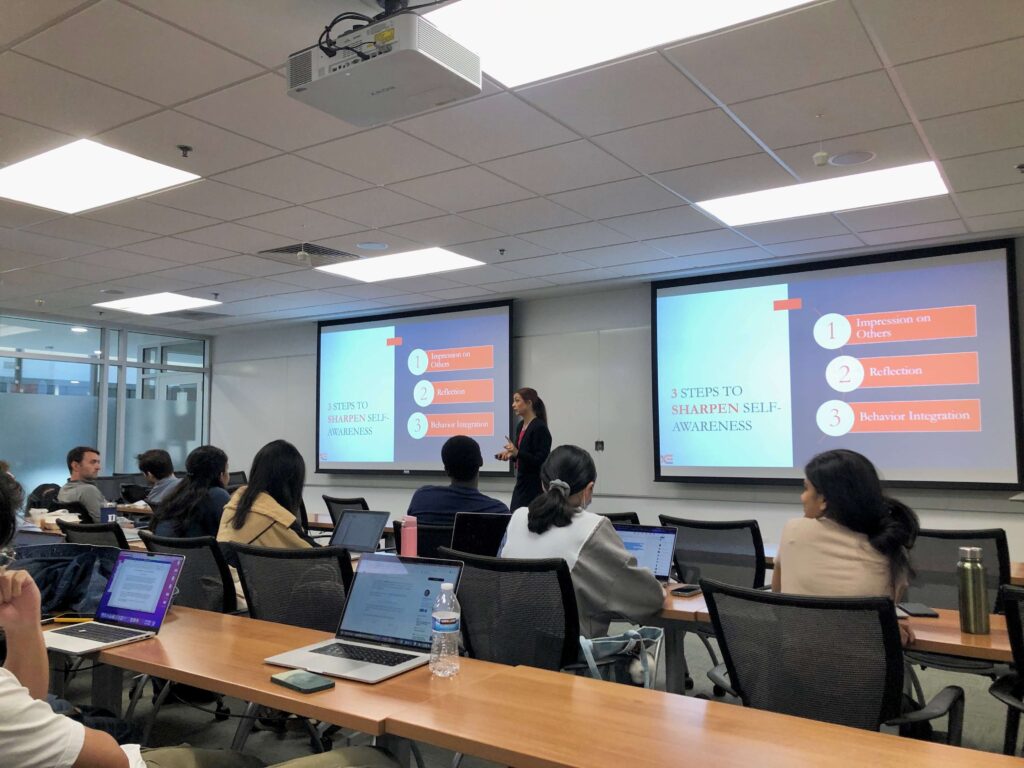Training for University Engineering Students
My Story
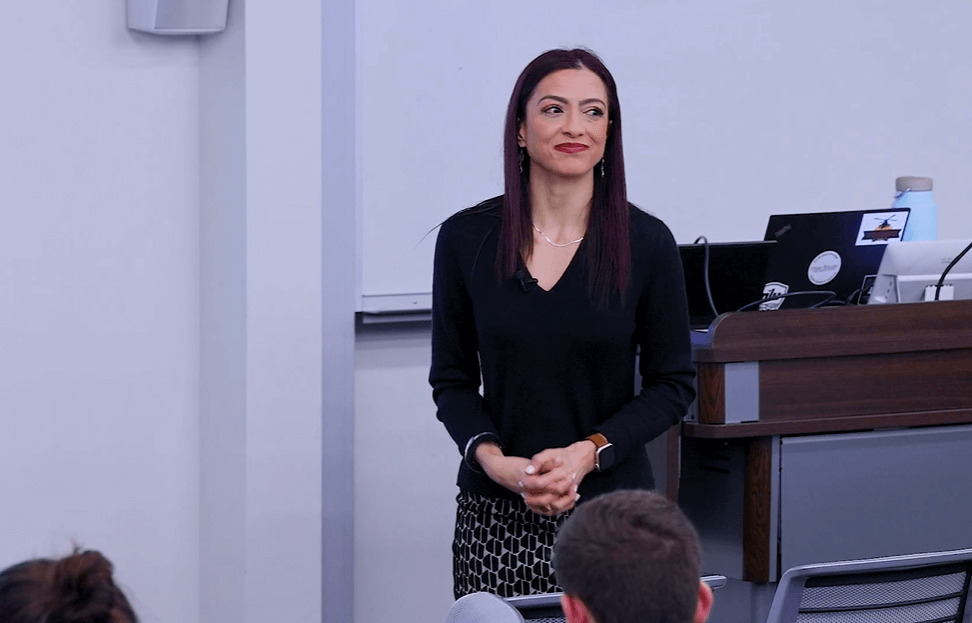
I graduated with a BS and MS in electrical engineering and entered a tech start-up and soon after, joined a Fortune 100 IT corporation. Despite my top grades, high performance at my jobs, and a deep passion, there were unexpected roadblocks in my STEM career. My lack of communication and leadership skills to navigate everyday workplace situations hurt my career success greatly.
While I did recover by learning the skill that allowed me to advance, it highlighted a huge gap in my education. My mission to change the career trajectory for other young engineers by helping you fill that gap for your students.
The Problem
When a high-performing engineer does not know how to have crucial conversations with her management, resolve conflict with his teammates, or ask for help when they are overwhelmed, to name a few scenarios, they are set up to struggle. Lack of these skills over a period of time leads to a drop in motivation, engagement, and creativity in problem solving, as well as increased stress and unhappiness. It lead to job hopping and often, early departure from the IT fields for the STEM professional.
The Solution
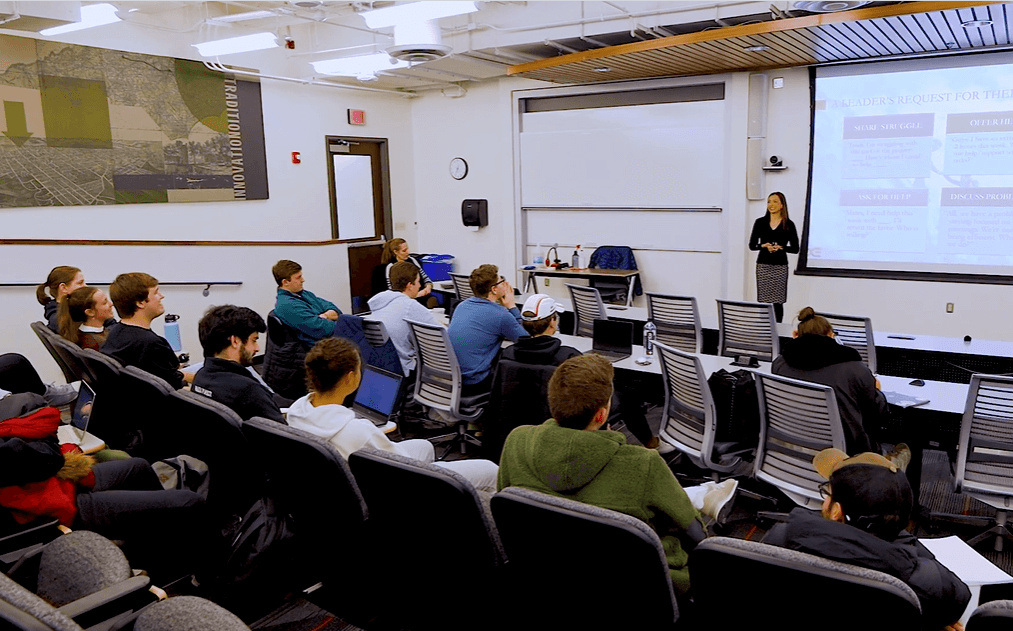
We must prepare the whole engineer for the workplace. Analytical and technical skills are the foundation that every good engineering curriculum offers but it is not enough. We must strive to set up our future engineering graduates with essential skills around excellent communication, powerful leadership and expansive mindset. This is a non-negotiable for any successful career trajectory in the STEM field.
This training is designed to teach these skills for senior or graduate school engineering students. The training is open to customization to meet each school’s time and investment constraints. Schools may choose to have as few as a single workshop or the entire curriculum. The minimum recommended workshop is a 2-hour class that will cover any two modules. All workshops are delivered in-person.
Style of Training
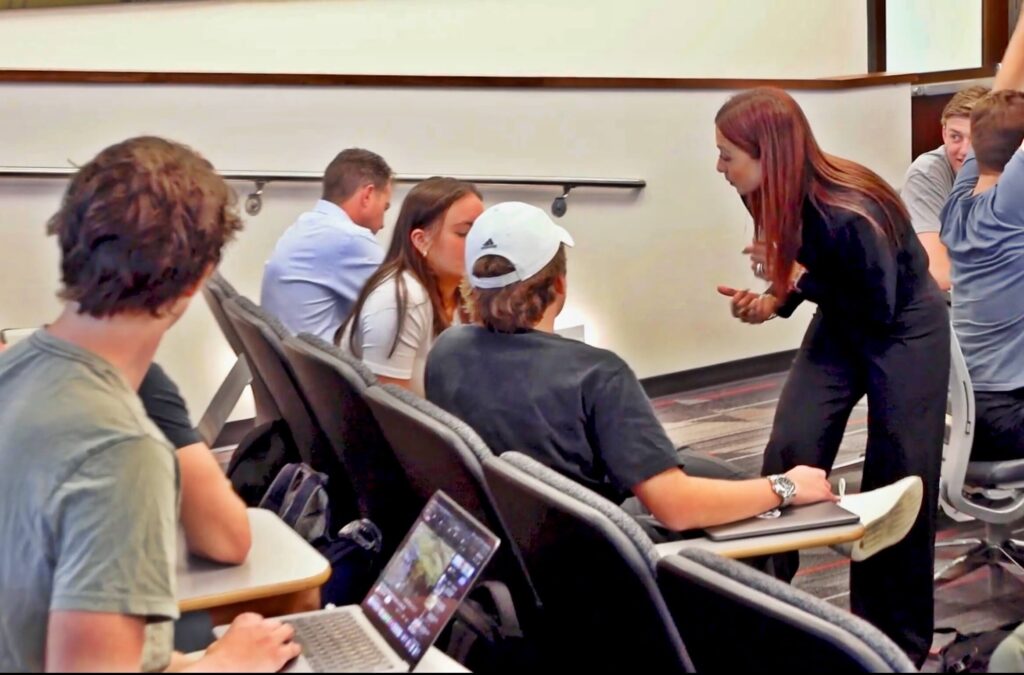
Short bursts of material infused class engagement, solo exercises, pair activities with guidance from instructor as she walks the room, and role-play
coaching where a few select participants will come up to practice a particular conversation with others watching/supporting/learning. Students have fun, feel safe to ask anything, and are inspired to do the deep work as they learn about the massive benefits to their career success.
Training Details
The material I have created for this training is divided into twelve modules. They ideally build upon each other, however they can be isolated and a training can be devised of a smaller combination of modules. The modules are are as follows.
Module 1: Mindset and Identity
The Expansive vs. Fixed Mindset is the starting point of our workplace readiness. In this module, we explore the crucial importance of our thinking and our identity as we enter a new ecosystem and transition from academia to corporate/business world. We demonstrate the pitfalls of a fixed mindset within the context of one’s role and growth, and we contrast that with benefits and success that comes from having an expansive mindset.
Module 2: Self-Awareness and Blind Spots
In this module, we focus on cultivating a sharp self-awareness as one navigates their new environment and builds an intentional and deliberate reputation. An important element of the self-awareness work is around blind spots, the areas that we are not even aware of and yet do hurt our progress and upward mobility, and how to avoid this. Part of the blind spots focus on common issues such as unconscious bias, self-defense mechanisms, and habits/patterns that no longer serve us in a professional environment.
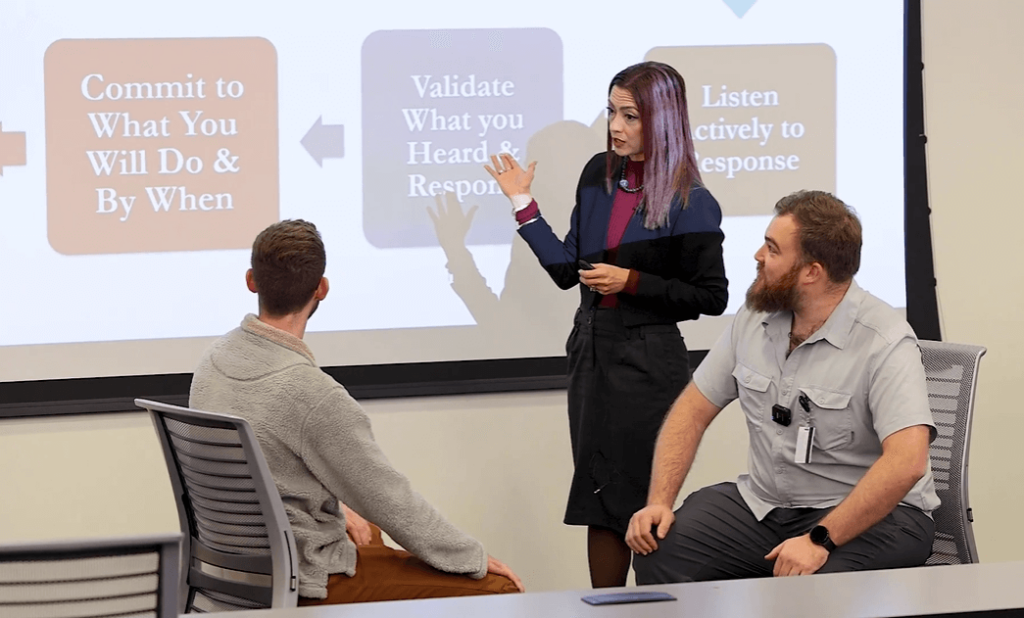
Module 3: Confidence and the Power of Voice
Confidence is a skill that can be developed like any other, and it is accessible to everyone. In this module, we dive deep into the major components of confidence, where to start working on one’s confidence, and then we do a deep dive around the power of one’s voice. With culture gaps, personality stigmas, and language barriers, there is no short of excuses to remain quiet at meetings, and this is precisely how STEM professionals lag growth. We turn this around here.
Module 4: Communication Framework
Effective communication skills can help a professional navigate every scenario & situation that he/she is bound to face. This skill especially benefits highly technical individuals who think analytically and often lack the ability to ‘translate’ their thoughts into leadership and management language. The 4-C communication framework is a step-by-step approach with demonstrated examples on how to connect & relate to non-technical peers and with decision makers and stakeholders in one’s team/organization.
Module 5: Conversation Strategies
Most STEM professionals avoid difficult yet necessary conversations, but this is a huge disservice to their career growth. In this module we build on the effective and proven strategies to having difficult, awkward, but crucial conversations within the eco-system, whether that is to advocate for an idea, to ask for resources or support, to clear up a misunderstanding, to build trust with peers or management or other similar scenarios.
Module 6: Lead & Facilitate Workplace Meetings Effectively
As a technical person, you must learn how to be organizing your thoughts in a logical and structured manner and how to facilitate and lead meetings and how to effectively articulate your thoughts and get buy-in and arrive at mutual agreements. All of this is part of the top-down communication roadmap that we cover and practice in this module.
Module 7: Leadership Language
The influence one can exert with the right language in the business/corporate world cannot be overestimated. When you speak the leadership language in a business meeting, with your upper management, or with your executive sponsors, you influence the response and the direction of that conversation. You earn a higher level of respect, visibility, trust and far are better equipped to navigate the politics as well as the delicate situations. This crucial topic is covered in this module.
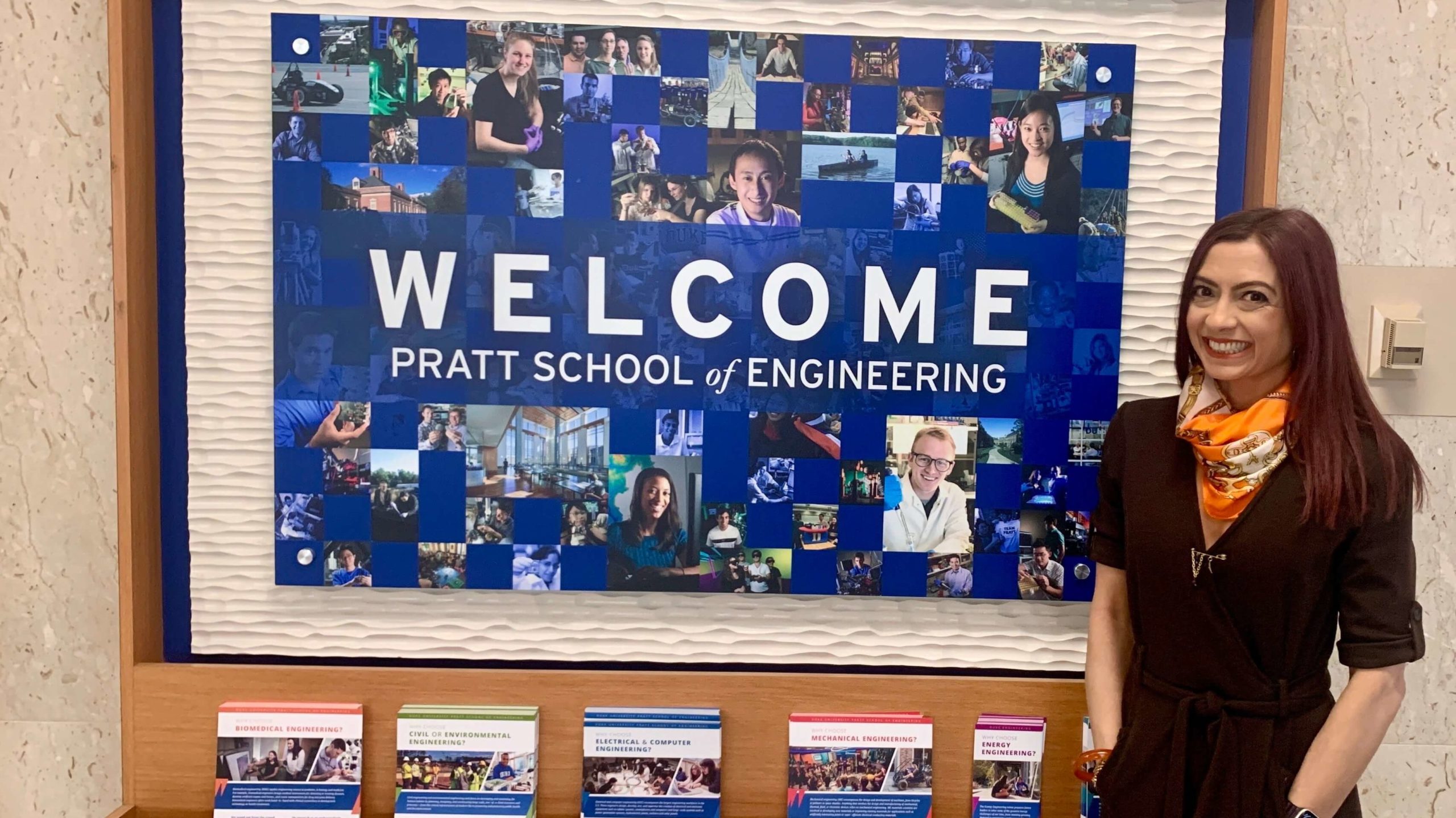
Module 8: Your Unique Serving Proposition
Even if you are an employee in an organization, you must have your own unique brand and be able to speak to your unique value and contribution. This is beyond one’s title and work responsibilities. It is the combination of three essential pillars referred to as one’s Unique Serving Proposition, how you are truly serving your environment and why you are unique in how you do it.
Module 9: Salary Negotiations
For early careerists, the concept of salary negotiation is both daunting and overwhelming. This is a skill to develop like any other and all must learn it well. Whether one is negotiating salary and compensation for a new job or in the course of a career, salary adjustments are rarely automatic. It is up to the person to lead this effort. In this module, we teachy why and how we always negotiate solely based on value, not self-worth.
Module 10: Networking and Relationship Building
Building relationships is a lifelong process in a successful career, and yet it does not come naturally to many. Regardless of one’s personality tendencies, or cultural or language barriers, everyone can learn how to network effectively at an event and how to build relationships. We go over helpful dialogue openers, and follow-up messages to nurture relationships over periods of time, and the best tools at our disposal.
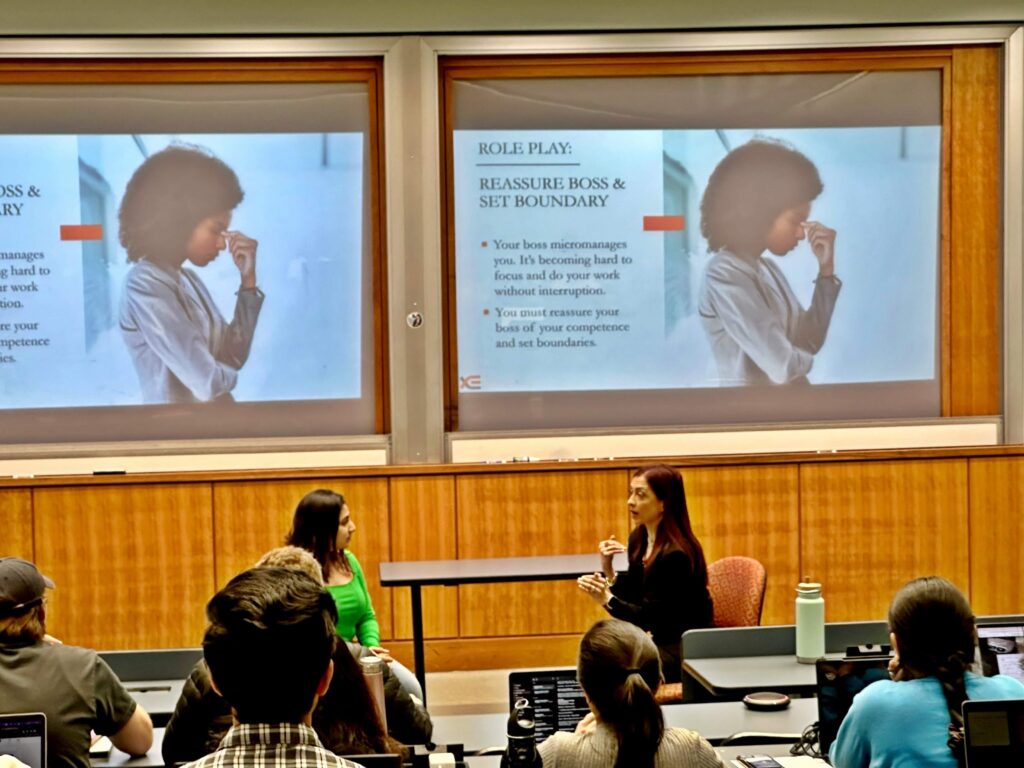
Module 11: Teamwork and Effective Feedback
In almost all workplaces, you belong to a team, whether small or large, and whether you work closely together on a project or operate with a high level of inter-dependence and autonomy, working in teams is a crucial to adapting successfully to corporate. A large component of that is the ability to receive feedback to grow oneself and to give effective feedback that builds our peers up. We cover all these topics and more related ones in this module.
Module 12: Conflict Resolution and Building Trust
Conflict in a work environment is inevitable. It is how we handle it and move on from it, and how we use conflict as a means to build even deeper trust that sets apart the true savvy professional. We discuss the distinction between healthy conflict versus unhealthy conflict that needs to be resolved, and a filtering process as well as the effective dialogue to navigate a conflict resolution.
Module 13: Emotional Intelligence & Behaviors
Emotional Intelligence (EQ) is your ability to understand, regulate and leverage your emotions with maturity at the workplace. EQ is one of the most sought-after skills in future leaders. A professional with agency over their emotions is seen as a high-potential leader in all work settings, and this is a learned skill with infinite ROI in your career. In this module, we learn about the 5 EQ composites and 15 EQ competencies that help you to use your emotions toward strategic self-expression & self-advocacy, building inclusive culture, making smart decisions even under stress and so much more.
Module 14: Entrepreneurship & Innovative Thinking
Whether you are part of a large/small company or a solo entrepreneur with dreams of building your own enterprise, you need entrepreneurial & innovative thinking in your STEM career. You must first visualize your new ideas without constraints, and then sell that vision to your management or teams. You need to allow for innovative thinking to drive your ideas before you are bogged down by limitations of budget, resource, time. The combination of your entrepreneurial mindset and strategic problem solving elevates you as the future STEM professional. In this module, we learn about nurturing an entrepreneurial mindset inside an organization, learning to push for necessary change effectively, and articulating your bold ideas both persuasively and strategically.
Proud to Have Worked With…

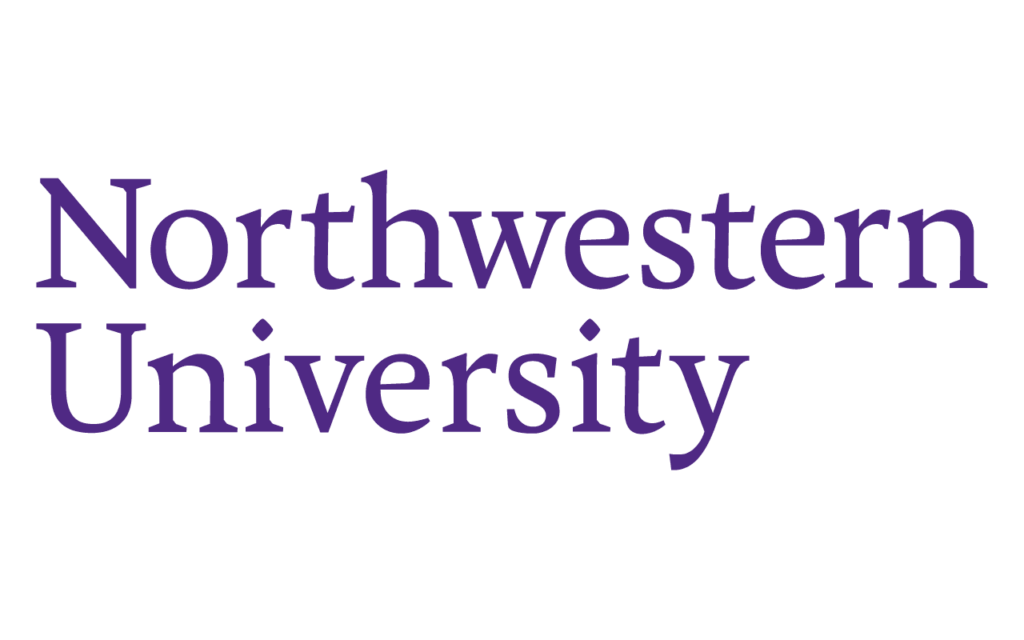
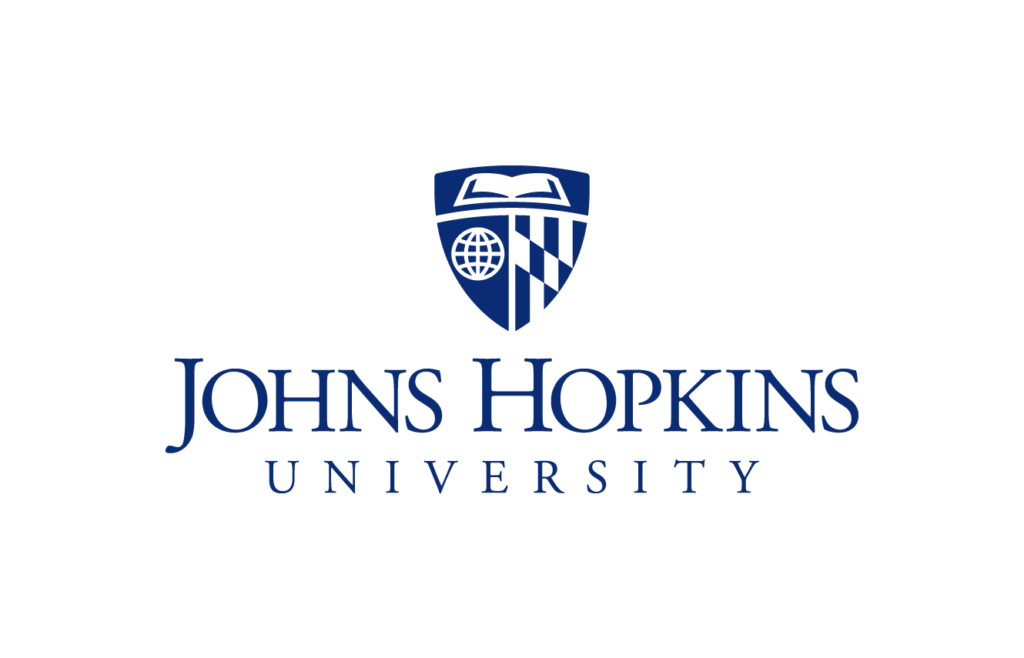

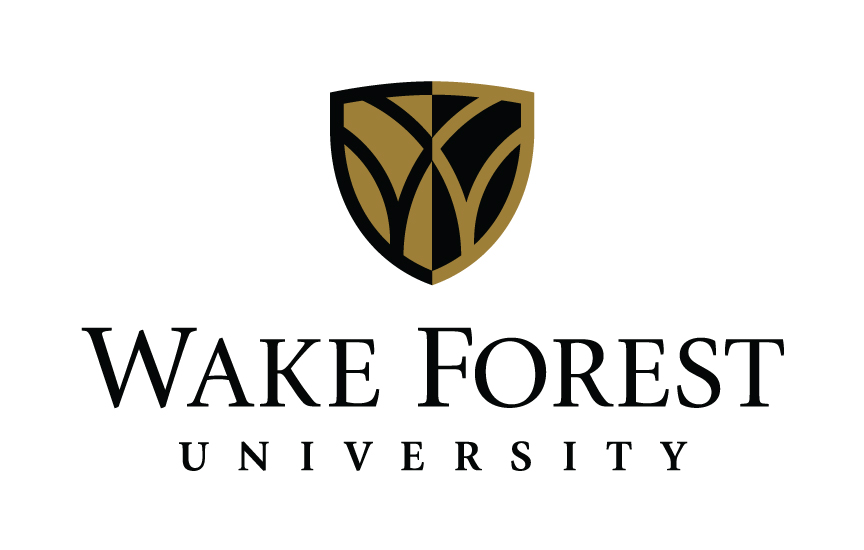
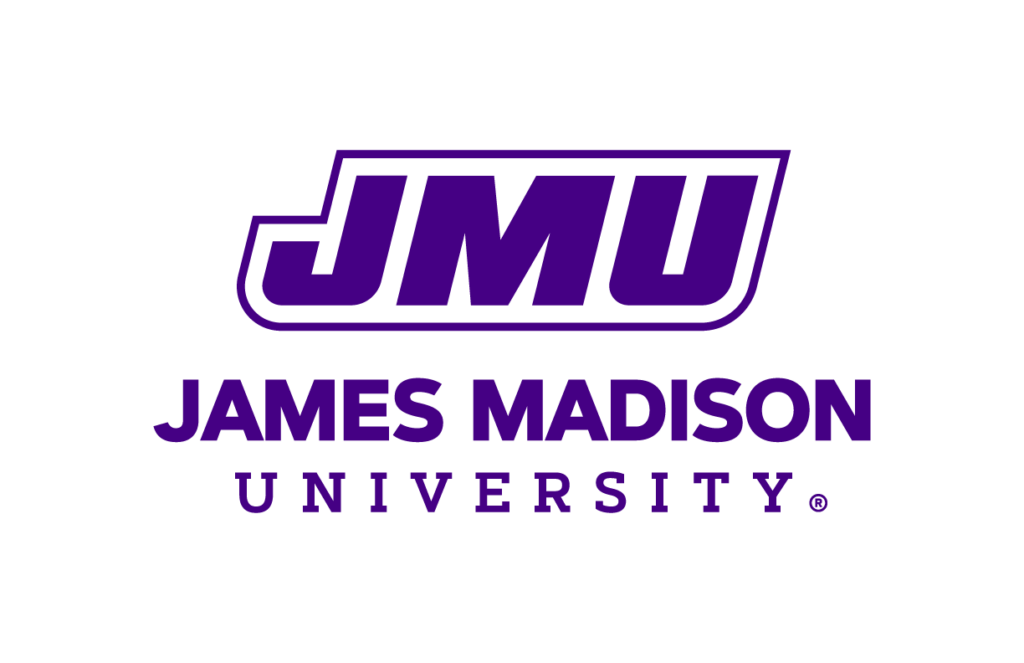
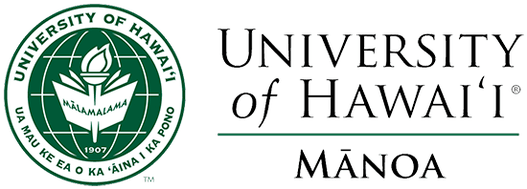


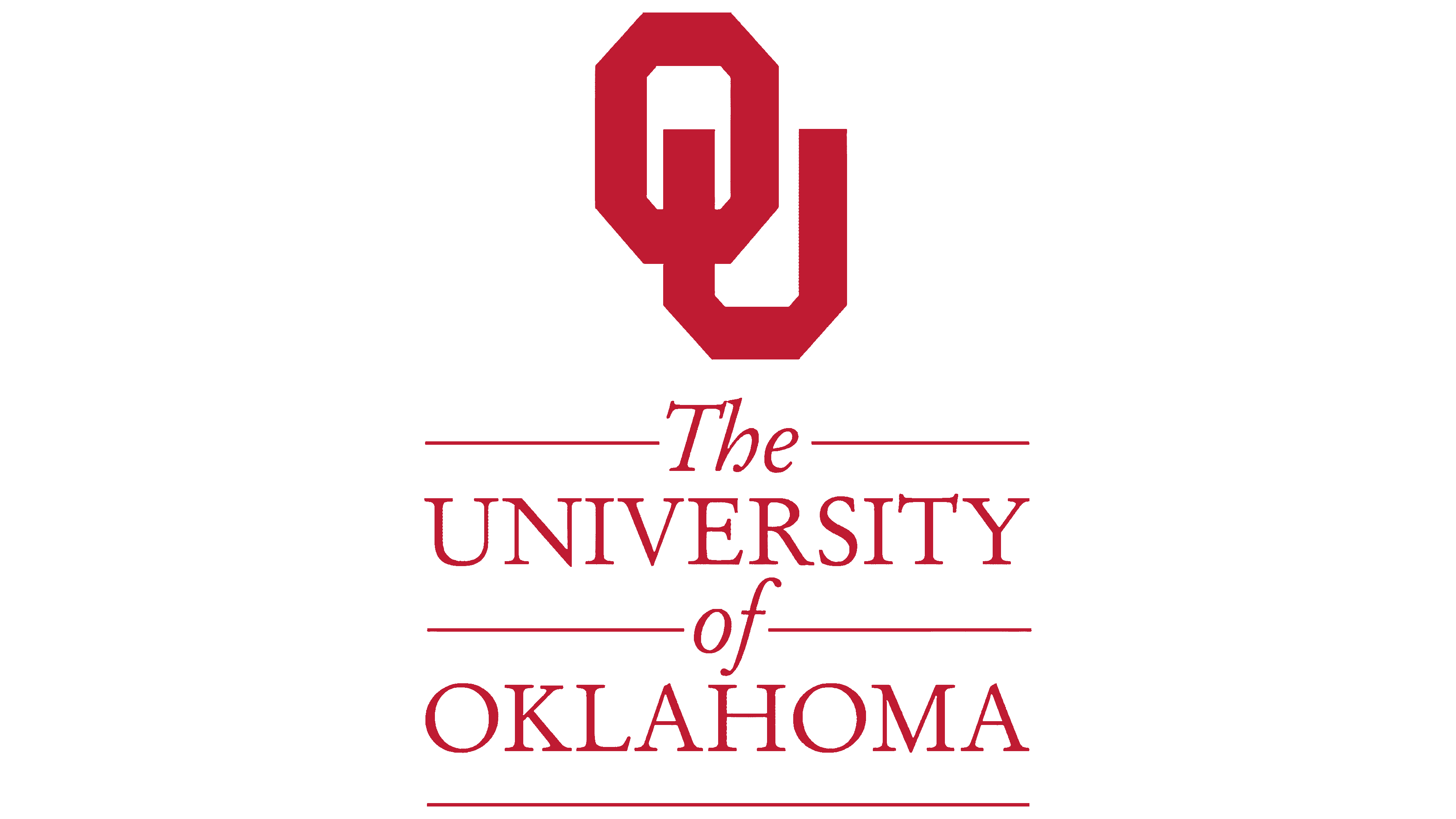
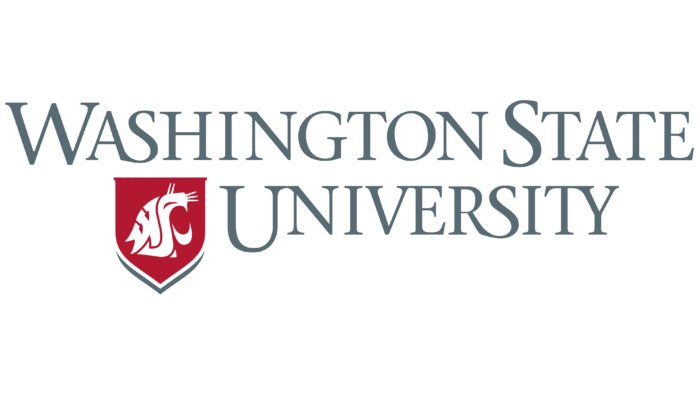
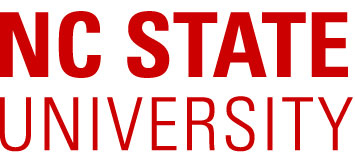
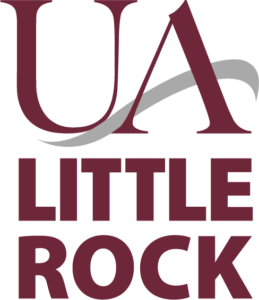

For a deeper explanation of the these programs and if you wish to explore the possibilities of bringing them to your institution, let’s talk.
Testimonials
Wake Forest University – Department of Engineering
Farnoosh Brock is an absolute inspiration. She joined Wake Forest Engineering to deliver eight sessions to our engineering seniors and to inspire them to be high performing professionals/engineers. She emphasized the importance of leadership, effective communication, professionalism, entrepreneurial thinking, and character. Her personal and professional journey as an engineer served as a backdrop to the real-world situations and authentic contexts that were infused in all the sessions. Her infectious enthusiasm facilitated an open dialogue with the audience. I attended every session and I was taking notes as the students were too. What Farnoosh teaches should be standard content in every engineering curriculum! I look forward to continued work with Farnoosh Brock.
Dr. Olga Pierrakos
Founding Professor and Founding Chair (2017-2022), Wake Forest Engineering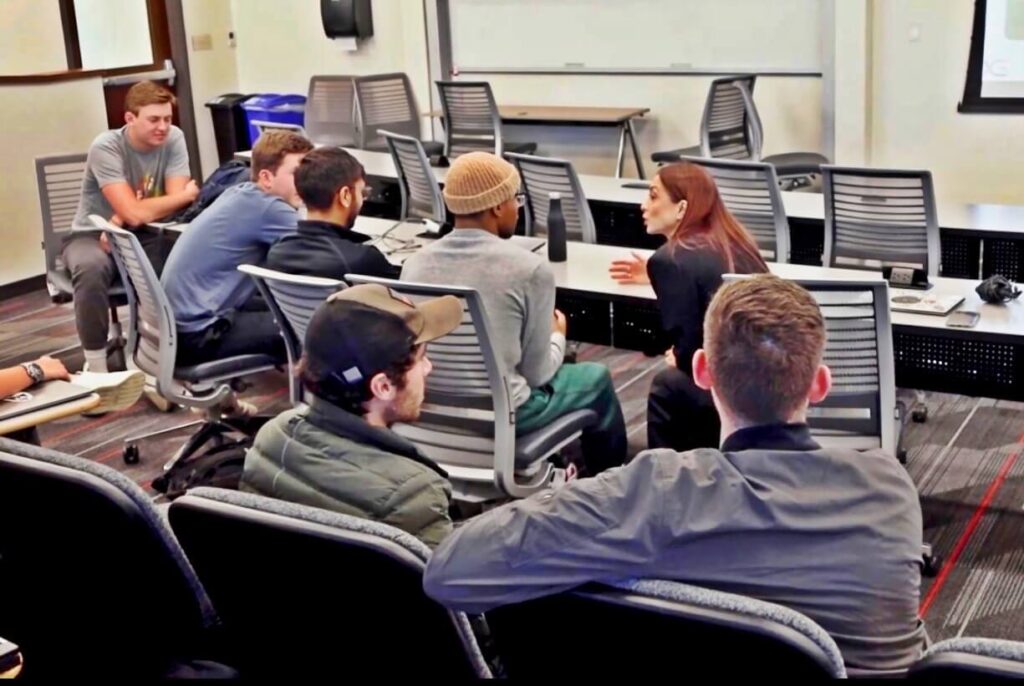
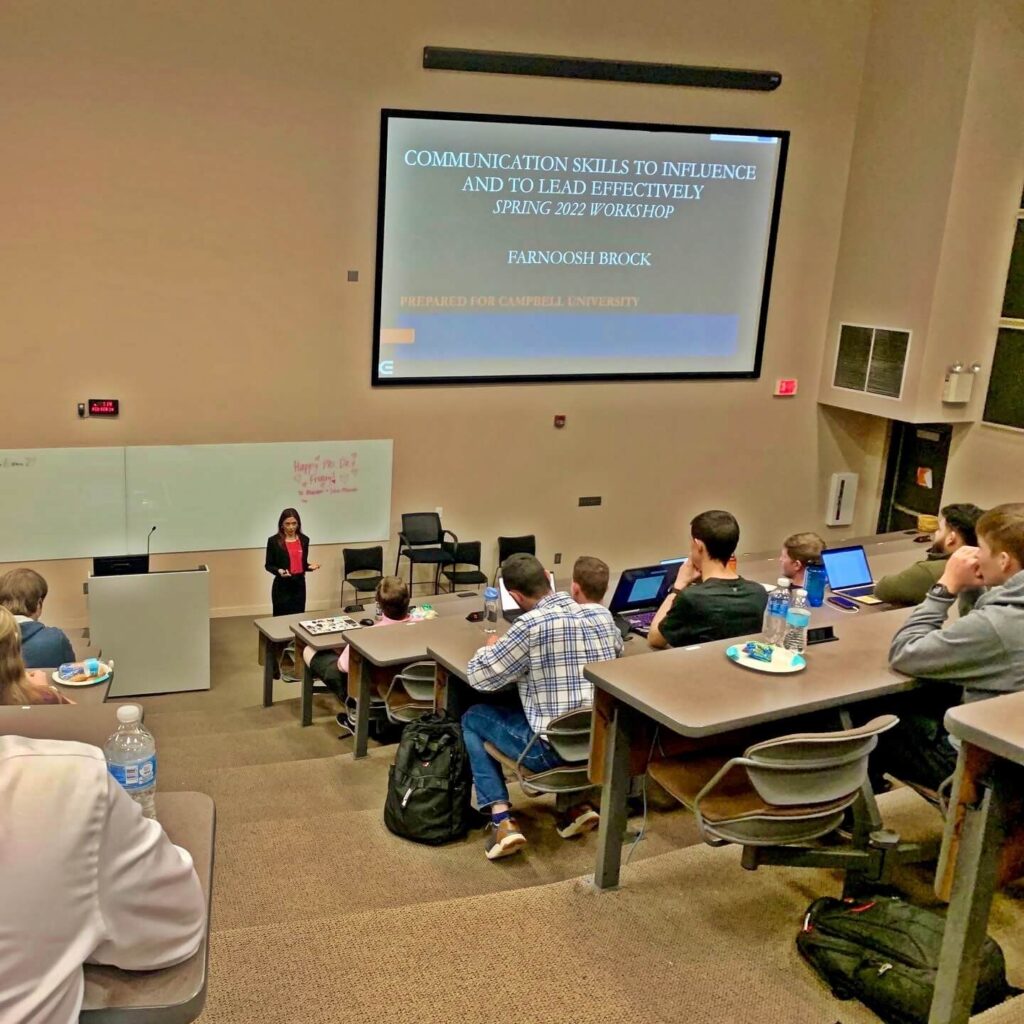
Johns Hopkins University – Master of Engineering Management Program
We hired Farnoosh to run two workshops with our Engineering Management graduate students at Johns Hopkins University. From the beginning, Farnoosh was responsive, collaborative, professional, and highly engaged. From an administrative standpoint, Farnoosh made the engagement as easy as possible, artfully navigating the balance between tailoring the program to our specific needs and making the communication and planning as easy and enjoyable as possible. More importantly, our students loved the experience, energy, and diligence she brought to every interaction and many of them have stayed in contact with her. They’ve also recommended that we bring Farnoosh back for the next cohort.
Trevor Mackesey
Co-director of the Master of Science in Engineering Management Program at Johns Hopkins UniversityDuke University – Master of Engineering Management Program
One of my favorite elements of the professional development program I managed at Duke Engineering for the Masters in Engineering Management (MEM) program was Farnoosh Brock’s excellent sessions on professionalism and communication. As a former engineer, Farnoosh immediately established credibility with our engineering students. Farnoosh’s approach was perfectly suited for our population – early career engineers who needed to learn how to communicate and operate as engineering leaders and comfortably connect with the non-technical leaders and colleagues they would collaborate with throughout their careers.
We offer a number of professional development opportunities for our students, but Farnoosh’s workshop was the best we have ever offered. We hope to bring her back for more workshops to prepare our graduates for life after college!
Carey Rudell
Assistant Director, Pratt School of Engineering Masters Program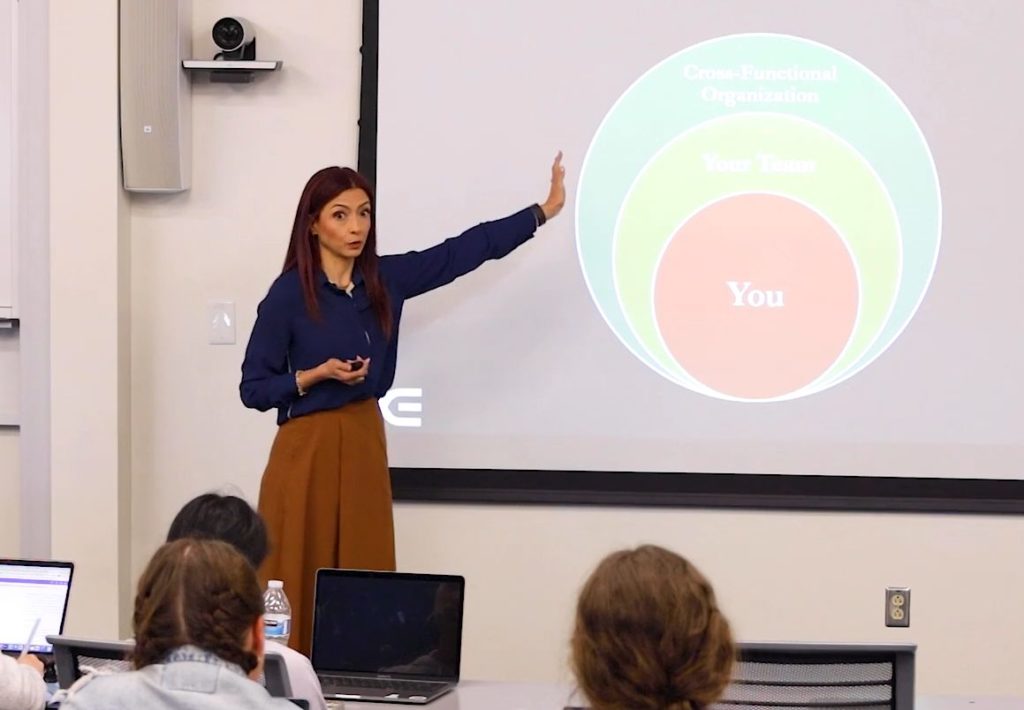
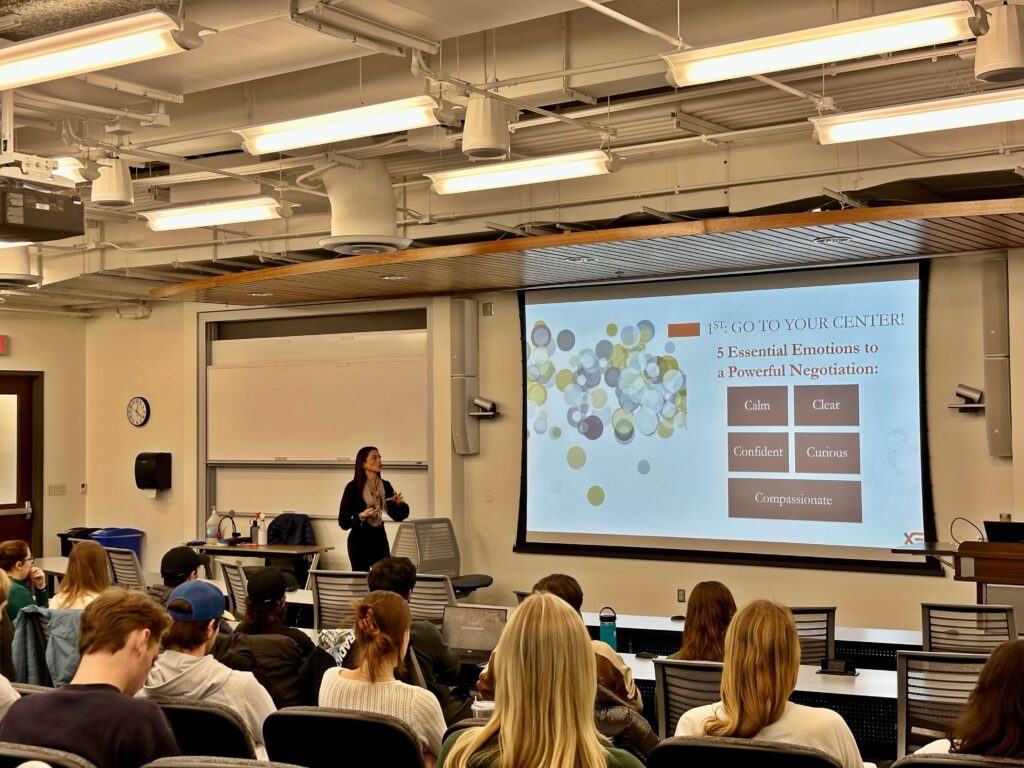
Campbell University – School of Engineering
Farnoosh delivered her communications workshops for our Campbell Engineering students this spring and she was absolutely phenomenal! Our students were raving about how valuable the 3-hour workshop was in preparing them for the transition from college to the workplace. We offer a number of professional development opportunities for our students, but Farnoosh’s workshop was the best we have ever offered. We hope to bring her back to campus for more workshops to prepare our graduates for life after college!
Jenna Carpenter
Dean and Professor, School of Engineering at Campbell UniversityPresident-Elect, American Society for Engineering Education
Duke University – Master in Interdisciplinary Data Science Program
Farnoosh successfully delivered her Leadership & Communications program for our students here at Duke University this spring (2021). She delivered two 90-minute sessions for students in our data science master’s program on expanding their communication skills as they enter the workforce. We’ve offered similar sessions in the past, but this is the first-time students sent me feedback before I asked for it. They loved her! They were able to immediately implement many of the concepts and tools she shared, saying they felt more confident, more assertive, and more prepared for important conversations in the workplace. One student was sure a new job offer was the result of what he learned in the sessions. From my perspective, she was an amazing partner from start to finish. She asked great questions, was clear in her commitments, and made the whole experience a delight. The introductory video, sessions, and follow-up materials were of the highest professional quality. I could go on but suffice to say I am looking forward to working with her again soon and I believe other academic institutions can also benefit by bringing this program to their students!
Minda Brooks
Program Director, Administration & Student Affairs at Duke UniversityMaster in Interdisciplinary Data Science (MIDS)
